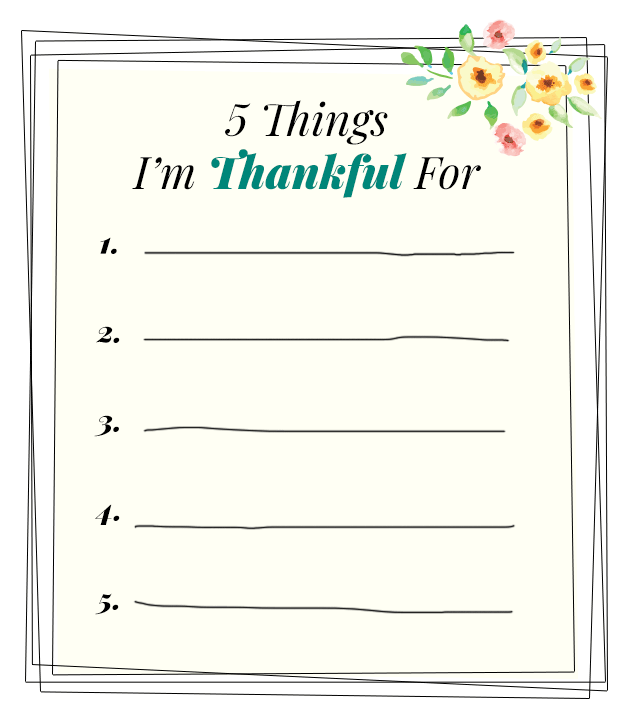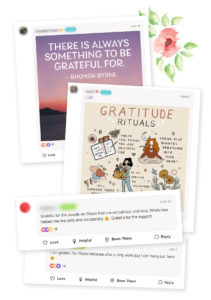Why Gratitude Is Something to be Thankful For
Expressing gratitude results in positive effects beyond psychological and social well-being.
Aug 16, 2021
Written by our Founder and CEO, our Celebrations Pulse Sunday Letters aim to engage with our community. From sharing stories to welcoming your ideas, we want to help you to express, connect, and celebrate the important people in your life.
Gratitude is about recognizing the goodness in our lives and appreciating how it flows from outside of ourselves. Leading gratitude expert Robert Emmons notes that the social component of gratitude is especially important because it requires us to acknowledge how others have supported us. In this regard, gratitude strengthens the bonds we have with others and encourages us to pay forward the gifts we have received in life.
The Benefits of Expressing Gratitude
The social, physical, and psychological benefits of practicing gratitude are numerous and well-documented. Gratitude neutralizes negative emotions while also boosting our happiness, optimism, and life satisfaction. A recent study by University of California, Berkeley psychologist Sonja Lyubomirsky found that asking participants to write down three things that they were grateful once a week made them significantly happier in just six weeks.
Expressing gratitude results in positive effects beyond psychological and social well-being. Grateful people sleep better, have stronger immune systems, exercise more, and are more resilient to trauma.
Communities and individuals become more interconnected through expressions and feelings of gratitude. When partners show regular appreciation for one another, they report feeling closer to each other and more committed in their relationship. Grateful children and adolescents are more generous and make active contributions to their communities.
How Do We Practice Gratitude in Our Everyday Lives?
Dr. Chloe Carmichael, a member of the 1800-Flowers Connectivity Council and author of Nervous Energy: Harness the Power of Your Anxiety, suggests adapting Mental Shortlist technique, which she features in her book:
The Mental Shortlist technique usually involves thinking in advance of five healthy or productive topics for your mind to pivot onto whenever you're prone to ruminate on an old, unfruitful topic.

Adapting this technique to the concept of gratitude, a person would think in advance of five special things for which they are grateful and challenge themselves to focus on something from that list and/or rapidly recall all five things on that list whenever they wanted a "shot of gratitude" in their outlook.
You can focus on the list whenever you want to cultivate gratitude, or you can build a "gratitude habit" by reviewing your list every time you do something else that's already a habit for you, such as every time you wash your hands. Some people find that trying to recall all five items to be a fun cognitive challenge that helps them to focus on their list longer. Others prefer to write down the list or even organize it into an easy-to-remember acronym.
You may want to rotate the items in your list every Sunday to keep the exercise feeling fresh – or you can even choose different aspects of the same thing each week. For example, one week your list might include "my children" whereas another week you might choose one child to focus on; or you might choose one aspect of a child to focus on, such as "I'm grateful that Grayson is such a joyful child," or "I'm grateful that Susan genuinely loves to help others."
Similarly, you might sometimes be grateful for your spouse in a general sense, whereas other weeks you might be more specific (such as "I'm grateful that Sam is so healthy"). The way you practice this technique can be very flexible or structured, depending on your preference: You can spend one minute on each item, or you could just let your mind gravitate to whichever item feels most natural at any given moment.
Jim acknowledges that finding the time and energy to regularly practice gratitude can be challenging:
Although I can be clumsy at it, it’s something I’ve been actively working on. Dr. Chloe suggested linking my gratitude practices to daily activities, like taking vitamins, getting out of the car and brushing your teeth. That way, giving thanks becomes habitual.
Share how you are practicing gratitude everyday with us here.
Community Spotlight – Connection Communities Powered By Wisdo

One way we have been expressing gratitude at 1-800-Flowers is through our partnership with Connection Communities powered by Wisdo, a free online community and peer-to-peer support group. Our “Expressing Gratitude” community has over 1,000 members.
Many of our users have expressed gratitude for the online community itself and having a non-judgmental space to share their thoughts and feelings with others. Join the conversation here.
There is always something to be grateful for: Shifting our mindset to acknowledge the opportunities and gifts that we’ve been afforded helps us to build better relationships, compassionate communities, and fulfilling lives.
We invite you to think about all the little things and people that make your life extra special. What’s one way you can show your gratitude to those people or for those things today? You can pick up the phone, send an email, or text to show your appreciation.
PS. Jim and team member Meredith Weinberg recently spoke with Andrew Horn, founder of Tribute, on the power of community, expression, and connection. To learn more, listen to Andrew's podcast, What’s the Big Idea.







